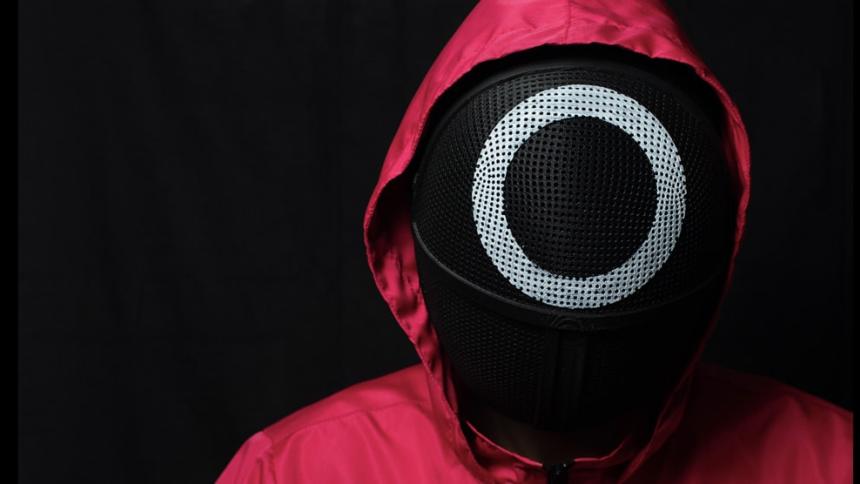
The 'real-life Squid Game' that sees human organs harvested on an industrial scale
Concentration camps full of political and religious prisoners, all overseen by brutal guards that torture and kill inmates in order to remove their internal organs to fuel a vast organ-harvesting operation. It sounds like something you’d only expect to exist within the world of horror films or macabre television shows. As anyone who’s seen Netflix’s global phenomenon that is Squid Game will attest. The disturbing thing is this… Such gruesome things are not just limited to fiction.
The plight of the Uyghurs in China has been something of worldwide concern for some time now. Uyghurs are a Turkic ethnic group that number some 13 million people and primarily live in Northwest China’s vast mountainous and desertous Xinjiang region. China stands accused by most of the rest of the world not only of persecution and detention, but of full-on crimes against humanity. Including genocide.
China vehemently defends their controversial system of ‘re-education camps’ for the Uyghur people, claiming that they’re humane and in place merely to avoid ‘separatism’ and ‘Islamist militancy’ in the country.
Internment of the Uyghur people would be harsh and worrying enough. State-sponsored murder, along with the black market selling of their organs is quite another matter. Yet this is exactly what United Nations human rights groups are alleging goes on in The People's Republic of China. With Amnesty International calling it 'the world’s least known crime against humanity'. And the International Coalition to End Transplant Abuse in China (ETAC) claiming it to be a ‘multi-billion dollar industry’.
So what exactly is happening? Well, as you can imagine, details are not hugely clear. China denies it goes on entirely. So, any information has to come from whistleblowers, of which - for fairly obvious reasons - there aren’t that many of. Years of the shocking practice, along with the brave work of dedicated investigators, have seen plenty uncovered about what’s going on. And when we say ‘shocking’, we mean it…
‘Forced organ harvesting’ isn’t just a robust attitude towards organ donation. It’s not about mandating donation on death. It literally means perfectly healthy people being murdered and their insides stolen as they die. Why? Well, simple... Money.
Consider how organ transplants happen everywhere else in the world. Hopeful recipients of kidneys, hearts, lungs, corneas, whatever they need, are put on organ donation lists. When a donor with a closely matched organ dies, that recipient is rushed to hospital and the transplant takes place. The trouble is, it can take years for a good match to become available. The alleged Chinese system is more of an ‘organ on demand’ set-up. A paying donee makes their demand known and a match is found from the tens of thousands of political and religious prisoners held by the state. That person is then killed to order and their organs extracted for transplantation.
From identified need to physical solution, we’re talking a mere matter of weeks. Consistently
In 2019, an independent tribunal concluded that there was proof of the barbaric and disgusting practice. The China Tribunal, chaired by Sir Geoffrey Nice QC, a veteran prosecutor of international criminal tribunal, said this:
“The conclusion shows that very many people have died indescribably hideous deaths for no reason, that more may suffer in similar ways and that all of us live on a planet where extreme wickedness may be found in the power of those, for the time being, running a country with one of the oldest civilisations known to modern man.”
China has a long and documented history of organ donation shortages. Its vast population and ever-extending average life expectancies mean that the need there is huge. Demand is enormous and public donations just cannot meet it. Which explains why The Red Dragon has long had a history of illegal harvesting via organ trafficking rings. Criminal enterprises, while grotesque, are - at least - understandable. To think of such activity not just being ignored by the state, but encouraged and even carried out by government employees is far, far beyond the pale.
It’s an extreme - and obviously abominable - practice. It didn’t just start from nowhere, though. There’s a creeping evil at work. It began back in the late 1970s when China decided that Death Row prisoners would make ideal donors, with or without their permission. The government effectively decided that they owned the person, their corpse and the precious cargo within. Controversial, but not without logic, at least.
The trouble is, organs cannot be taken from dead bodies. A heart cannot be cut out of someone who isn’t alive. At least not if you want that heart to stay healthy and capable of working again once transplanted into its next owner. So executions were deliberately botched in order to heavily wound, but not quite kill, prisoners. They were then harvested for the relevant matched organs while still alive and then killed afterwards. If they survived the surgery, that is.
Pre-execution medical tests were carried out on these Death row prisoners to determine their suitability for transplants and to match them with potential recipients. The same process is now allegedly happening with China’s political dissidents and religious prisoners.
As the 20th century ended, China set about ramping up its persecution of the Falun Gong. As the number of Falun Gong rounded up and imprisoned rose steeply, so too did the number of organ donors and surgeries. Death Row executions alone cannot explain the exponential rise in transplants. A steep rise in the number of deaths of incarcerated Falun Gong followers, however, can. Later spikes in transplants can be matched with increased persecution, imprisonment and deaths of Uyghurs.
China continues to deny being responsible for any state-sanctioned organ harvesting. The Chinese embassy said this in a statement to The Guardian when asked about it:
‘The Chinese government always follows the World Health Organization’s guiding principles on human organ transplant, and has strengthened its management on organ transplant in recent years. The Chinese state council has enacted regulations on human organ transplant, ensuring that human organ donation is done voluntarily and gratis. We hope that people will not be misled by rumours.’









